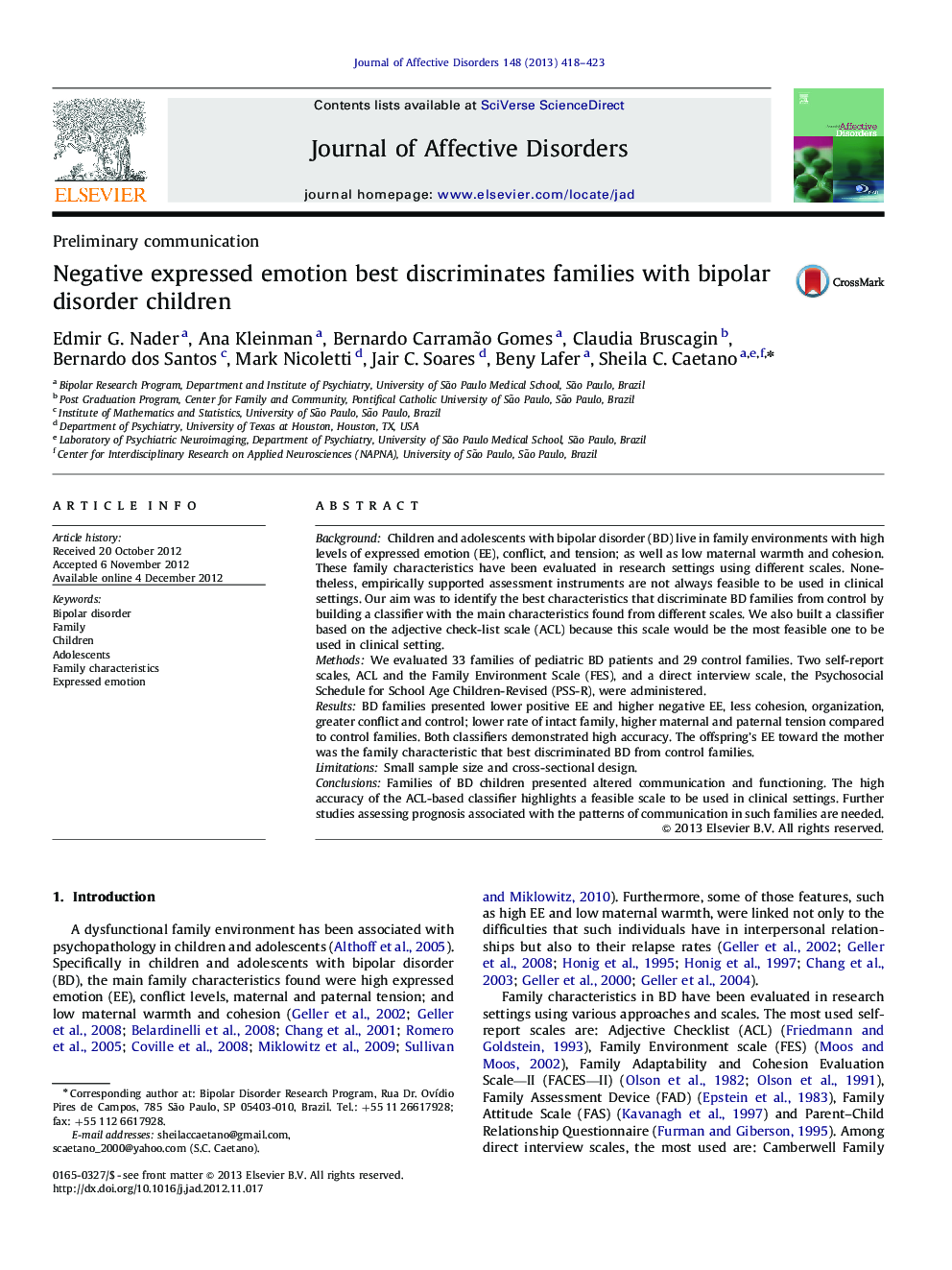| کد مقاله | کد نشریه | سال انتشار | مقاله انگلیسی | نسخه تمام متن |
|---|---|---|---|---|
| 6234491 | 1608174 | 2013 | 6 صفحه PDF | دانلود رایگان |
BackgroundChildren and adolescents with bipolar disorder (BD) live in family environments with high levels of expressed emotion (EE), conflict, and tension; as well as low maternal warmth and cohesion. These family characteristics have been evaluated in research settings using different scales. Nonetheless, empirically supported assessment instruments are not always feasible to be used in clinical settings. Our aim was to identify the best characteristics that discriminate BD families from control by building a classifier with the main characteristics found from different scales. We also built a classifier based on the adjective check-list scale (ACL) because this scale would be the most feasible one to be used in clinical setting.MethodsWe evaluated 33 families of pediatric BD patients and 29 control families. Two self-report scales, ACL and the Family Environment Scale (FES), and a direct interview scale, the Psychosocial Schedule for School Age Children-Revised (PSS-R), were administered.ResultsBD families presented lower positive EE and higher negative EE, less cohesion, organization, greater conflict and control; lower rate of intact family, higher maternal and paternal tension compared to control families. Both classifiers demonstrated high accuracy. The offspring's EE toward the mother was the family characteristic that best discriminated BD from control families.LimitationsSmall sample size and cross-sectional design.ConclusionsFamilies of BD children presented altered communication and functioning. The high accuracy of the ACL-based classifier highlights a feasible scale to be used in clinical settings. Further studies assessing prognosis associated with the patterns of communication in such families are needed.
Journal: Journal of Affective Disorders - Volume 148, Issues 2â3, June 2013, Pages 418-423
